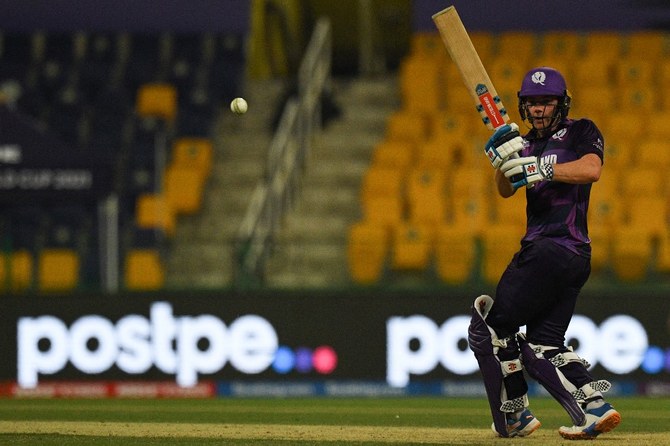In soccer, managers and coaches are a high-profile part of the game. This is less the case in cricket. Traditionally, an overseas touring party had a manager appointed to oversee the logistics of the tour and to be its public face. An assistant manager sometimes doubled up as a coach, with the team captain also taking on coaching responsibilities.
In both Australia and England coaches were not selected on a long-term basis until 1986. India had started earlier down this route in 1971, although a feeling of “Indian-ness” had been instilled in the 1960s by the princely captain Tiger Pataudi.
Less international cricket was played at that time and players had more opportunities to work on technical errors that might have entered their game. In the professional (and amateur) domestic game, captains, or their delegates, ran matters, both on and off the field.
However, first-class cricket was entering a new era as commercial sponsorship placed greater emphasis on winning. One aspect of this was increased attention given to diet, fitness and nutrition, although this may have been difficult for the bon viveurs on the professional circuit to embrace enthusiastically. The management of all these developing trends became too much for one person, the captain, to cope with and the role of coach/team manager emerged at both domestic and international levels.
In the latter arena, countries tended to have a panel of selectors, whose chair was a powerful figure. This dynamic has changed with the arrival of a full-time manager/head coach. In England, the power was removed completely when, in April 2021, responsibility for selection was given to the head coach, although the views of the captain are brokered. It is too early to know if this power concentration is for the best.
Over the past four decades a group of elite head coaches has emerged in international cricket. Generally, but not exclusively, they had represented their country at cricket and graduated to become the coach of their national team through a learning stage of coaching regional teams both at home and abroad. As their reputation grew, they attracted the attention of boards of other countries looking to improve their national team’s performance.
England appointed its first overseas coach in 1999, India its first in 2000, but it took until 2011 for Australia to appoint one. A South African famously coached India to World Cup victory in 2011, and an Australian coached England to 2019 World Cup victory.
Each of these coaches has had a different approach to their roles. One approach is to be hands-off, giving space to the players, especially the captain, so that they can express themselves in a relaxed environment. The coach manages emotions, knowing when to be formal or informal with the players, providing a sounding board for concerns that an individual player may wish to discuss privately.
Another approach is to be more technical and theoretical, driven by the statistics and analysis of performance, seeking improvements in technique through practice. The amount of data available to coaching staff is now substantial and is used to inform strategy and game plans.
It can lead to overcomplicating simple aspects of the game and runs the risk of players stopping to think for themselves and communicating with each other. Some elite players have been known to be dismissive of the data-driven approach.
A third approach is that of being a hard taskmaster. Several who tried being this have mellowed with experience. Recently, the Australian head coach has been subject to leaked complaints about his micromanagement, draining intensity and unpredictable mood swings. This has led to a resetting of the relationship between him and the players.
Essentially, cricket is an individualistic team sport. A coach must set a strategy and game plans that act as a driving force for the team and which can be executed by both the captain and the players. In setting out to achieve this, the relationship between the head coach and the captain must be, at the very least, in tandem. The manager/coach is seeking to blend private individuals and team players, givers and takers, established performers and newcomers, trying to create an environment in which, ideally, they can all flourish and improve both as players and individuals, helping each one to maximise their potential.
High skills are required to coach an international team across three formats – 20 overs, 50 overs and Test cricket. It has become standard practice to have specialist batting, bowling and fielding coaches in order for the head coach to concentrate on keeping the team focused, functioning and united, taking pressure off the captain. The coach can fine-tune.
A good example of this occurred in respect of an Australian bowler on his first tour to England. In the opening Test match his performance was below par. The coach took him to the nets, placed two cones either side of the pitch at a certain distance from the stumps and told him to bowl until he could consistently land the ball between the two cones, since that was the length to bowl in England. In the next match the bowler claimed eight wickets out of 10 and a stellar career followed.
The demand for top-class coaches is increasing, especially with the expansion of the IPL, women’s and emerging nations cricket. In the 2021 IPL, where the relationship between the coach and the franchise owners is an added dimension, only one head coach was Indian. Out of the 16 head coaches in the T20 World Cup this year, seven are nationals and, remarkably, of the other nine, six are South Africans.
A coach’s task is all-consuming, carrying a relatively short span per contract, requiring cricketing credibility, high-quality person-management skills and the ability to create a nurturing environment for the team. At the top end of the scale, their value is reflected in salaries around the $1 million mark. Cricket coaches now play a vital and significant role in contributing to a team’s success or failure in the professional game.


























